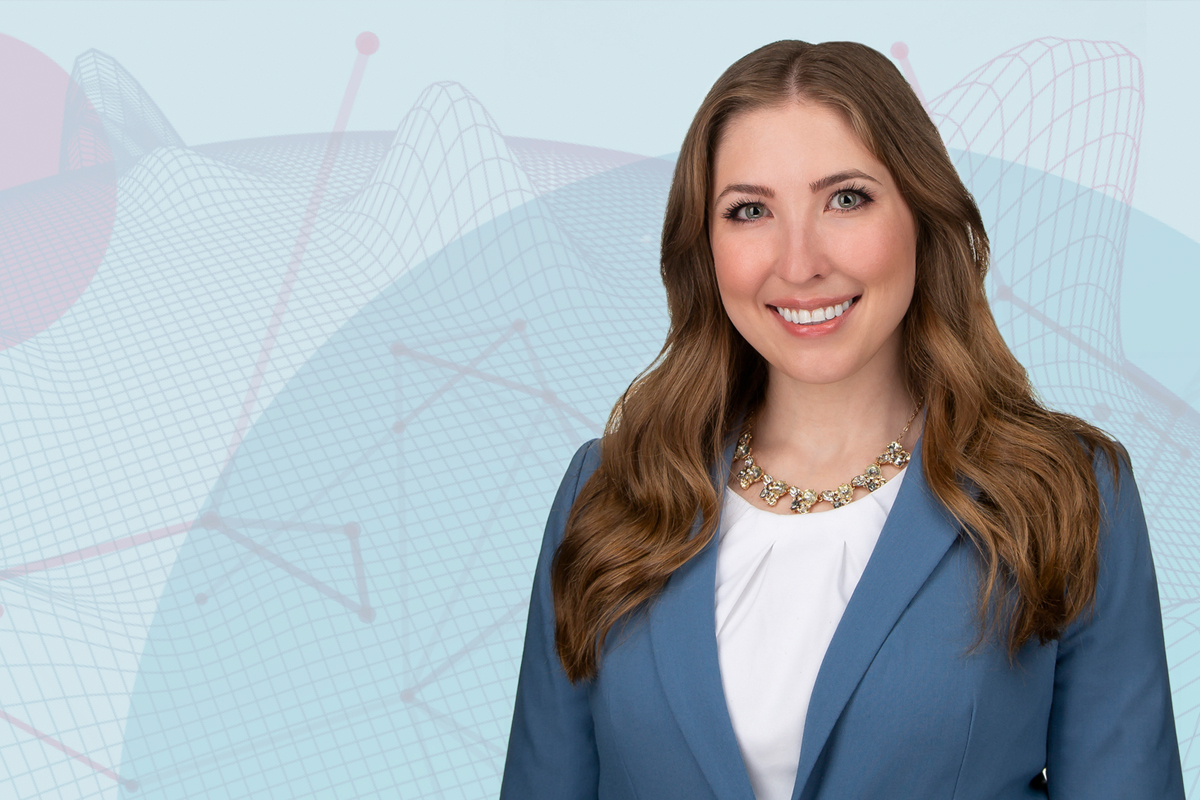First in Fellowship

Jessica Bass, DO, knew she wanted to become a physician scientist, but she never imagined she would become the first osteopathic physician to secure one of the most prestigious fellowships in the nation.
In 2004, Jessica Bass, DO (COM ’18), and her family embarked on a trip to the swamps of the everglades during an outbreak of West Nile virus. After a sunrise visit to a sanctuary for sick birds, she contracted the virus as well as encephalitis. While unfortunate, the experience became pivotal in her decision to study infectious diseases.
Bass pursued her curiosity by studying biology as an undergrad at Newman University in Wichita and working as a microbiology lab teaching assistant. There, she learned to make a variety of growing media and culture and stain all types of bacteria. She also recognized she had an acute interest and skill in the lab setting – pushing her to conduct bench research with BT-20 breast cancer cells.
During her first year at KCU, Bass continued to discover a love of research. She worked with Eugene Konorev, PhD, MD, associate professor of Basic Sciences, screening marine compounds to determine their effects on blood vessel growth. She didn’t know it at the time, but this valuable experience would set the stage for her to become the first DO to earn one of the most prestigious fellowships in the nation.
Following her KCU graduation, Bass and her husband relocated to Naples, Florida, where she matched in internal medicine at NCH Baker Hospital Downtown. Yet, she continued seeking research opportunities. Eventually, she met renowned Mayo Clinic faculty member Dr. Greg Poland, whose research on immunogenetics of vaccine response has been funded by the National Institutes of Health (NIH) since 1991. This chance meeting led to an invitation to complete a lab rotation at Mayo’s flagship campus, where she realized she wanted to pursue a career as a physician scientist.
With her sights set on securing a research fellowship, Bass took advantage of these opportunities and worked hard. She credits the sound guidance she received from an associate program director at Mayo with helping her reach that goal. He advised her to take a chief year of residency and get published. “I took that advice to heart and was so appreciative of the honest feedback. The path to getting published in residency was rocky, as the clinical research infrastructure at the program had not yet been established. Much of what I did, I learned by trial and error. During my year as chief resident, I helped develop a research elective which provided support and research mentorship to residents interested in research,” she said. “By the time I started applying for fellowships, I had interviews with all of my top choices, including Stanford. But my goal was always the National Institutes of Health.”
The hard work paid off when Bass reached the pinnacle of her young career by securing one of only four infectious disease fellowship positions at the National Institute of Allergy and Infectious Diseases (NIAID), a branch of the NIH under the direction of Dr. Anthony Fauci. Her three-year assignment at NIAID began July 1, 2022, with her first year focusing solely on clinical sites in the Washington, D.C. area as well as Johns Hopkins University.
Bass credits the education and support she received from KCU faculty with setting the stage for her career. “I had a wonderful experience at KCU. The supportive faculty, classroom education, and hands-on clinical and patient simulation labs in the first and second years, along with one-on-one time with attendings dedicated to teaching in my third and fourth years, set me up for success. I received such a well-rounded medical education at KCU.”
Bass says the most rewarding aspect of her fellowship is interfacing with those who author the textbooks that are used throughout medical training. “To have exposure to that level of expertise is unbelievably humbling,” she said. “Aside from their vast knowledge, I have found everyone at NIAID to be warm and approachable. They are there because they love what they do, and I’m so grateful to be part of it.”
Perhaps the most impressive part of her story is not just that Bass earned an esteemed fellowship with the world’s largest source of medical research funding and the driving force behind decades of scientific advances, but that she has done so while juggling the demands of a young family. Bass and her husband, Ryan, have two sons, ages 4 and 2.
“This is what I’ve always wanted to do. The way the NIAID weaves clinical experiences and research together isn’t done anywhere else. It really offers the best of both worlds for me,” said Bass. “I feel so fortunate for the mentors – both at KCU and beyond – who helped me get here.”
